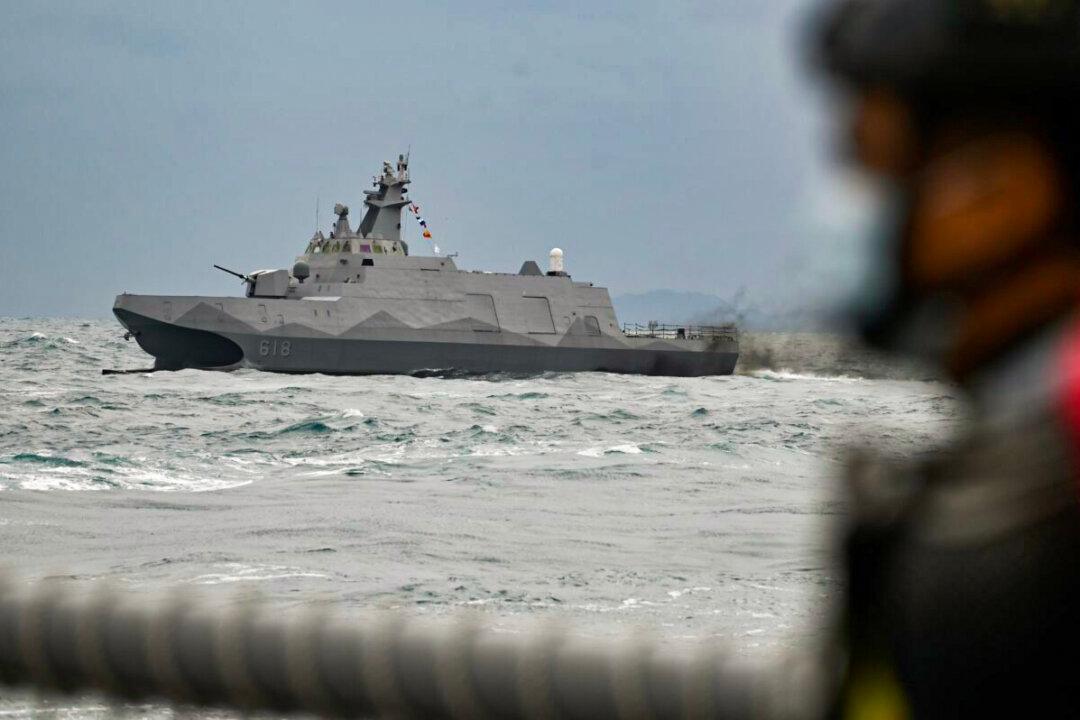China is holding military drills in waters south of Taiwan amid the escalating Ukraine crisis as the United States sailed a warship through the sensitive Taiwan Strait.
The military exercise, which began Feb. 27, will last three days in a six-nautical-mile radius off Hainan Island, which sits at the southernmost tip of China, China’s Maritime Safety Administration announced, as it warned ships to stay away.





